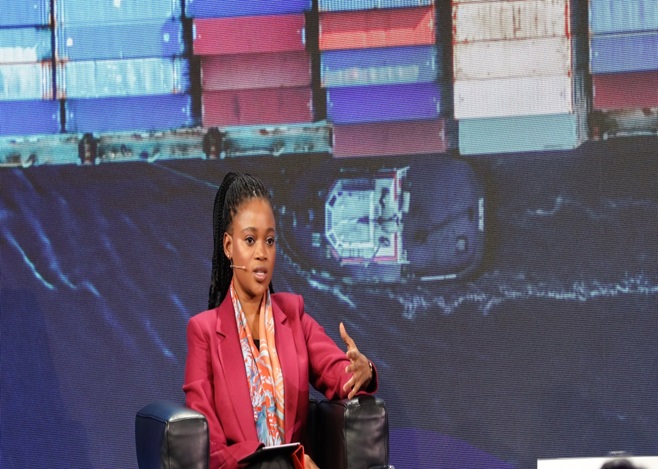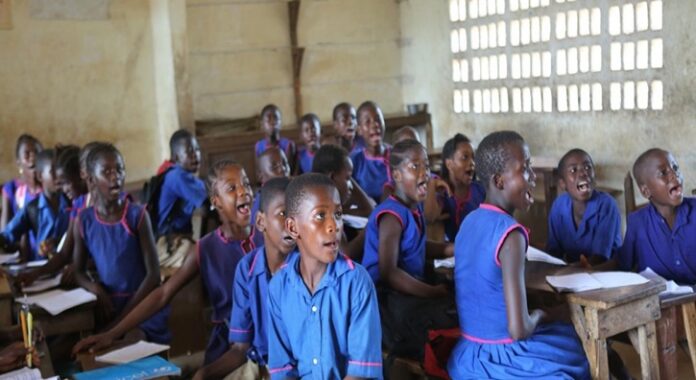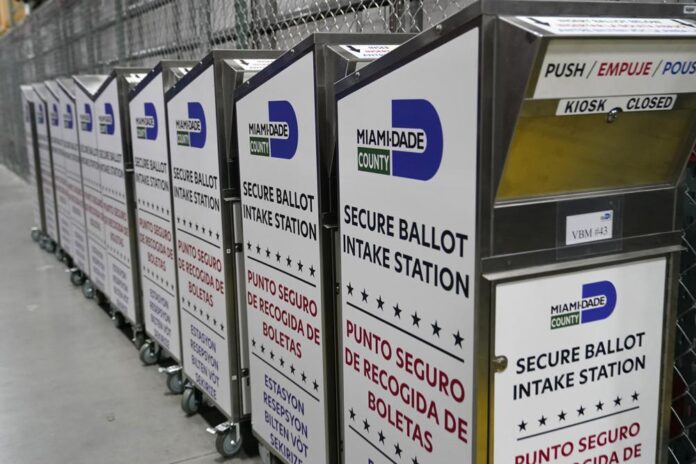As the world prepares for the UN climate talks in Egypt from 7-18 November 2022, the UN Framework Convention on Climate Change (UNFCCC), recently appointed Botswana’s former Cabinet minister, Bogolo Kenewendo as UN Climate Change High-Level Champion’s Special Advisor, Africa Director. For Africa Renewal, Baboki Kayawe caught up with her to unpack her latest assignment:
Africa Renewal: Climate change is an increasing threat to Africa, and your appointment comes at a time when Africa will be hosting the global climate talks (COP27) in November?
Ms. Kenewendo: Given that Africa has contributed little to global emissions so far, but it is already being disproportionately affected by the impacts of climate change, mine is to push for African countries and non-State actors to be active leaders in driving and leading action towards a managed, just and financed transition.
A climate action-oriented path offers Africa the opportunity to avoid the mistakes of a totally high carbon industrialization and seize the opportunity to leapfrog into a new economy and a better form of growth that can deliver on both its development and climate goals. We are focused on highlighting opportunities that exist in this space; new industries, jobs and development.
What exactly does the role entail and what does this mean to you?
My role is about engaging with non-state actors in climate action and activating the ‘ambition loop’ with national governments.
It is clear that climate action needs all levels of leadership to be involved and this year it’s important that we have a strong African presence in climate action discussions. Mine is to ensure that their voice is heard.
In addition, business and finance play a role in driving the ambition loop, and it is important to ensure that African economies and players take advantage of the myriad opportunities presented by the new industrial revolution.
It is hard to drive an approach of net zero without mentioning a managed, just and financed transition for Africa to industrialize.
What will success look like for you?
The climate action and climate change space is usually Western dominated and focused on reducing carbon emissions without addressing developmental issues. The hope is to strengthen the narrative of the nexus between attaining the Sustainable Development Goals (SDGs) and climate action in developing countries with a special focus on Africa.
Also, mobilizing finance for climate action projects especially in energy and water. Energy poverty is one of the challenges plaguing Africa and the continent needs energy to grow and improve the lives of its people. It is hard to drive an approach of net zero without mentioning a managed, just and financed transition for Africa to industrialize.
Africa cannot use the same approach as the West.
With that said, there is need for a compilation of investor-ready climate action projects from across the continent, a stronger African presence during COP27; as well as having more Africa-focused and facing events, and more African voices in the process and mobilization of resources to African projects.
There is need for a compilation of investor-ready climate action projects from across the continent, a stronger African presence during COP27; as well as having more Africa-focused and facing events, and more African voices in the process and mobilization of resources to African projects.
As a build up to the Egypt meeting, we hosted the African Regional Forum on Climate Initiatives to Finance Climate Action and the SDGs [in early August 2022 in Addis Ababa, Ethiopia].
Additionally, during the Africa Climate Week [29 August—2 September 2022 in Libreville, Gabon], there will be a strong focus on mobilizing finance for climate action in Africa; innovative project financing, financing a new economy in the context of the African Continental Free Trade Area (AfCFTA) and the development of an efficient African carbon market.
Many African countries are trying to adapt to climate change, recover from the impact of COVID-19, and now contend with the fallout from the war in Ukraine. In what ways can Africa be a climate action agent in these times?
Many countries entered the COVID-19 crisis with significantly greater debt vulnerabilities than they had at the start of the global financial crisis. This has resulted in constrained fiscal space for Africa to simultaneously build resilience to climate change and sufficiently respond to the pandemic.
First, we need to unlock the liquidity constraints; the pledges to recycle at least 25 per cent of European allocated Special Drawing Rights should be actioned in line with the the Paris Agreement and President Macron’s call, $100 billion of this should be allocated to African countries.
When pledges are honored, climate finance can be part of the solution towards easing the pressures through debt-for-climate and debt-for-nature swaps could be part of the overall solution.
There needs to be more international effort towards financing Africa’s development and climate action ambitions. A starting point must be to tackle Africa’s fiscal constraints. Africa will also need a major scaling up of both international public and private finance. To date, only $80 billion of the $100 billion per annum commitment by developed countries for developing countries by 2020 has been met. Of this, only around $20 billion was provided to Africa from 2016-2019.
When pledges are honored, climate finance can be part of the solution towards easing the pressures through debt-for-climate and debt-for-nature swaps could be part of the overall solution.
You are a former minister in charge of investment, trade and industry in Botswana, and a vocal advocate of the AfCFTA. How can Africa meet its industrialization aspirations while remaining on a sustainability trajectory
The AfCFTA represents the state of Africa’s economic ambitions. Climate change poses a serious risk that can undermine the economic benefits the AfCFTA is predicted to bring. We know that the continent’s GDP is vulnerable to extreme climate patterns, with most of our economies being natural resource reliant, that is minerals, agriculture and wildlife. It is imperative that the implementation of the AFCFTA and the engagement of stakeholders also reflects trade as a lever for sustainable growth, one aligned with Agenda 2063.
There are many opportunities posed by a managed, just and financed transition – opportunities of new industries and the development of green value chains.
Interestingly, this has led to the recognition of African indigenous knowledge and locally produced seeds and food, a welcome development for agriculture and those who have been historically left out of mainstream modern economies.
The AfCFTA represents the state of Africa’s economic ambitions. Climate change poses a serious risk that can undermine the economic benefits the AfCFTA is predicted to bring. We know that the continent’s GDP is vulnerable to extreme climate patterns, with most of our economies being natural resource reliant, that is minerals, agriculture and wildlife.
It is imperative that the implementation of the AFCFTA and the engagement of stakeholders also reflects trade as a lever for sustainable growth, one aligned with Agenda 2063. “The Africa we want” which aspires to build a prosperous Africa on the basis of inclusive growth and sustainable development, with an emphasis on the importance of building “environmentally sustainable and climate resilient economies and communities’’.
There needs to be a clear pipeline of bankable and investment-ready projects in three critical areas: energy transitions and related investments in sustainable infrastructure; investments in climate change adaptation and resilience; and restoration of natural capital (through agriculture, food and land use practices) and biodiversity.
Adaptation will be at the heart of COP27 discussions, and a top priority for Africa. However, financing has not come through. What needs to happen to make progress on these commitments?
There needs to be a clear pipeline of bankable and investment-ready projects in three critical areas: energy transitions and related investments in sustainable infrastructure; investments in climate change adaptation and resilience; and restoration of natural capital (through agriculture, food and land use practices) and biodiversity. This is to deal with suggestions that African countries do not have a pipeline of bankable and investor-ready projects.
In addition to member states’ commitments, developed countries must work with developing countries to crowd in private sector investments through de-risking tools and innovative financing options. The Africa Group of Negotiators has called for $1.3 trillion a year in climate finance to be made available from 2025.
During COP15 in 2009, the parties agreed to climate finance funding of $100 billion annually by 2020, however, as mentioned earlier, only around $20 billion was provided to Africa over 2016-2019. The shortfall will only continue to increase if there are no serious movements in honoring these commitments.
What keeps you optimistic about the work on climate change?
There are so many opportunities in the green economy. These opportunities can be a whole new impetus of growth and development for many African countries if they are financed and there is full implementation. I am optimistic about the ‘new economy’, we need the industries and the jobs.
For more information on COVID-19, visit www.un.org/coronavirus







